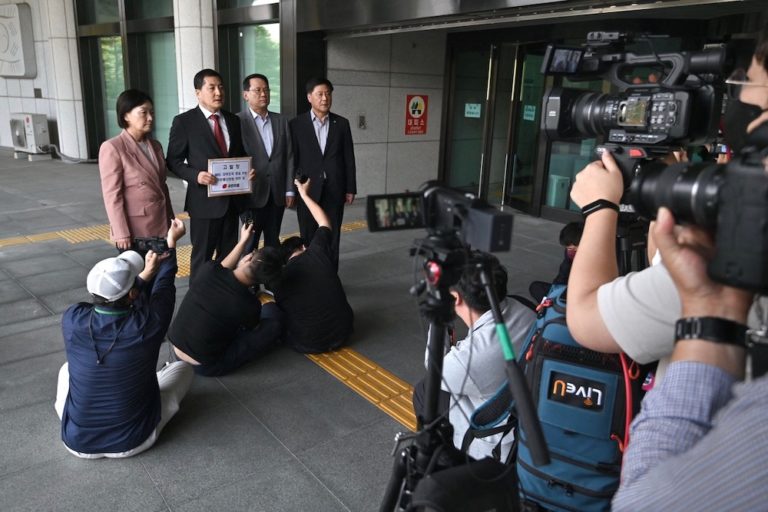Reporters Without Borders is appalled by the action of the owner and chairman of the South Korean daily "Hankook Ilbo", in locking out around 180 of his journalists after some of them filed a complaint about his management of the newspaper.
Reporters Without Borders is appalled by the action of Chang Jae-ku, owner and chairman of the South Korean daily Hankook Ilbo, in locking out around 180 of his journalists on 15 June 2013 after some of them filed a complaint about his management of the newspaper. Certain staff members have been fired and replaced by Chang allies.
“We take no position on the origins and nature and of the dispute between Hankook Ilbo’s employees and management, but we deplore the illegal methods used by the owner, which constitute a flagrant violation of the right of these journalists to report the news,” Reporters Without Borders said.
“Chang’s direct interference in the composition of the newspaper’s editorial staff, with the aim of protecting himself from potential legal repercussions, is also appalling. We urge the courts to order him to stop barring journalists from their workplace in order to end the dire consequences that this affair has had on the production and dissemination of news by Hankook Ilbo.”
The case goes back to 29 May, when part of the newspaper’s editorial staff filed a complaint with the Seoul public prosecutor’s office accusing Chang of “breach of trust” in his management of the newspaper.
Chang responded by hiring around 15 security company guards to prevent 180 journalists, editorial writers and other employees from entering the newsroom on 15 June. According to the Korean Herald, force was used to eject two journalists who were already inside.
Hankook Ilbo editor-in-chief Lee Young-sung was demoted and replaced by Jong-oh Ha, a retired editorial writer close to the owner. The management also appointed two new editorial writers.
The journalists immediately began a series of demonstrations outside the building to draw attention to the lockout. The Hankook Ilbo Union Emergency Committee also issued a statement addressed to the international media. It said:
“This is not a simple dispute between a labour union and a company. It is the fight of 180 reporters and editorial writers who gathered with the united goal of punishing a corrupt company owner attempting to exploit the editorial office system for his own personal gains, and with the goal of restoring the legitimacy of Hankook Ilbo as an authentic newspaper in Korea, where the press has a reputation of delivering one-sided stories (…) We will defend justice by fulfilling our mission to watch for abuse of power and criticize injustice as we always have been doing. We will not make an exception for the owner of our company.”
Only half of the newspaper’s current content consists of articles by journalists. The rest consists of YonHap News Agency dispatches.


